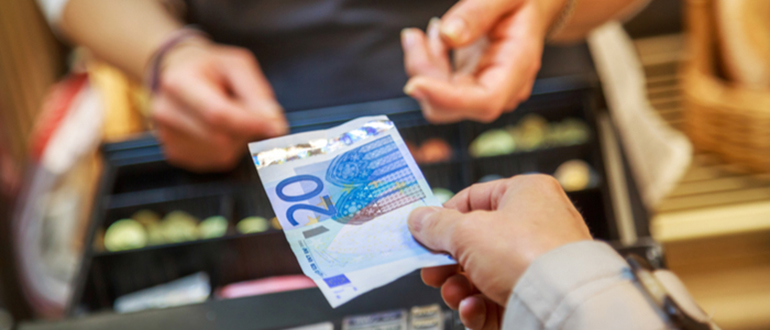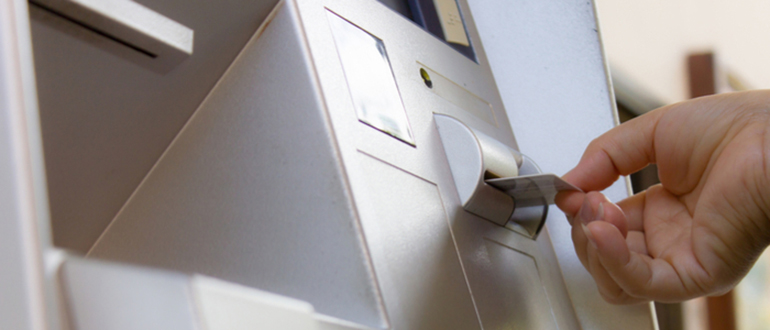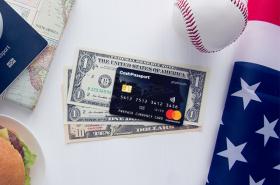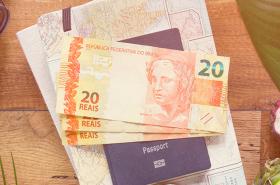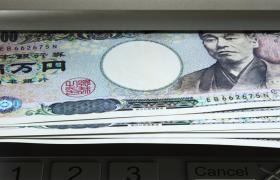Quick Contact

5th May 2017
When you're travelling overseas, using your regular debit or credit bank card to manage your travel money often seems like the easiest option. But all too often, this convenience comes at a price.
Discover the sneaky international bank fees you can incur while travelling, and how to avoid them, so you can put your cash toward more important things – like souvenirs!
What Fees Are Charged?
There are a number of different charges issued by the Aussie banks for using your card overseas, depending on the type of card you’re using and the type of transaction.
You can read all about it in great depth in this blog post, but here’s a quick summary of the fees you can expect:
Currency conversion fee
Charged when you use your debit or credit card to pay for something in a currency foreign to the default currency of your card, because your bank has to convert Australian dollars into the foreign currency you require. It's usually around 3% of the AUD transaction value.
Overseas ATM fee
Charged by your bank for using an ATM outside of their network, overseas.
Local ATM Owner's fee
Charged by the owner of the overseas ATM for using their machine for an international transaction. You may sometimes be charged both of these ATM fees for one transaction.
Cash Advance Fee
If you withdraw money from your credit card, your bank will charge you this fee on top of the above ATM fees. This is because you are essentially borrowing money from the bank. AND you will be charged interest on top of this fee – and it’s usually super high for a cash advance.
Dynamic Currency Conversion fee
Sometimes when you use your own bank card to pay for things overseas, the merchant gives you the option to pay in the local currency or in your own currency (AUD). It seems logical to select to pay in AUD – that way you won't be converting money into a foreign currency and can avoid the currency conversion fee.
Unfortunately, logic doesn't make it correct. It's actually the opposite case here; you still pay the currency conversion fee no matter which option you choose, but if you choose to pay in AUD instead of the local currency, the merchant charges a DCC fee to cover the cost of using a third party to offer you this option.
These fees may not seem like a lot at the time, but if you use your card often, the fees can really add up, and it could land up costing you hundreds – or maybe even thousands – on top of your holiday costs.
So, if you could avoid these fees, wouldn't you want to? Here’s how:
1. Don't use your bank cards.
Probably the easiest way to avoid these bank fees is to just use other travel money options, like cash or a prepaid travel money card. Or you can do some research and find a debit or credit card that has no or low foreign transaction fees or ATM fees. Though, these may come with other fees that are higher, so make sure you compare all of the details!
2. Don't withdraw money using your credit card.
This is the easiest way to avoid a hefty cash advance fee. Alternatively, you can load money onto your credit card so your account has a positive balance. Then when you withdraw cash it's your own money versus the bank's money – or you can withdraw cash using your debit card.
3. Use an ATM connected to your bank
Some banks are part of a Global ATM Alliance, and if you use an ATM overseas that is connected to your bank's partnership Alliance, you may find the ATM fee waived or reduced for you. For example, Westpac is part of the Global ATM Alliance^, so you can avoid the International ATM fee by using an ATM connected to Westpac NZ, Barclays Bank (UK) or Bank of America (USA), to name a few.
4. Find ATMs that don't charge a local owners fees
In Europe, many of the ATMs don't charge that local operator fee, so you'll just have the fee from your own bank (unless you can avoid it by doing the above).
5. Always choose to pay in the local currency
If you're given the option, always opt to pay in the local currency rather than in AUD while overseas. This is the only way to avoid the DCC fee.
6. Minimise your ATM withdrawals
If you do need to withdraw money, you can minimise the fees you will be charged by withdrawing the maximum amount the ATM will let you take out. Just make sure to keep any surplus cash safe after your withdrawal until you need it.
7. Use ATMs attached to banks
If you use standalone ATMs, like those in hostels, hotels, convenience stores or airports, you’re likely to be charged a much higher ATM fee than you would if you used an ATM attached to a bank. That's because you’re essentially paying for the convenience of that ATM location.
8. If you use foreign cash, be smart about where you exchange it
There's no point opting to get foreign cash instead of using your bank card (to avoid fees), if you land up paying fees to purchase your foreign cash. Instead, look for a foreign exchange company that doesn't charge fees for your FX transaction (like us), and avoid exchanging your money at the airport, where you are likely to be charged a fee or commission for your transaction. But, with a little bit of preplanning and cost comparison, you can get a great deal on your foreign exchange before you go.
With just a little bit of thought, planning and research, there are ways to avoid (or minimise) paying international bank fees when you're travelling. After all, you didn't save all of that holiday money just to give it right back to the bank, did you? That’s what we thought.
If you'd like some help picking the right travel money options for your holiday, or need to exchange your cash before you go, our team of FXperts are on hand to help you out. Just visit your nearest Travel Money Nz store and let us do the hard work for you!
^Westpac is part of the Global ATM Alliance network. Further information is available on their website. https://www.westpac.co.nz/fx-travel-migrant/travel/atm-global-alliance/
This blog is provided for information only and does not take into consideration your objectives, financial situation or needs. You should consider whether the information and suggestions contained in any blog entry are appropriate for you, having regard to your own objectives, financial situation and needs. While we take reasonable care in providing the blog, we give no warranties or representations that it is complete or accurate, or is appropriate for you. We are not liable for any loss caused, whether due to negligence or otherwise, arising from use of, or reliance on, the information and/or suggestions contained in this blog.


